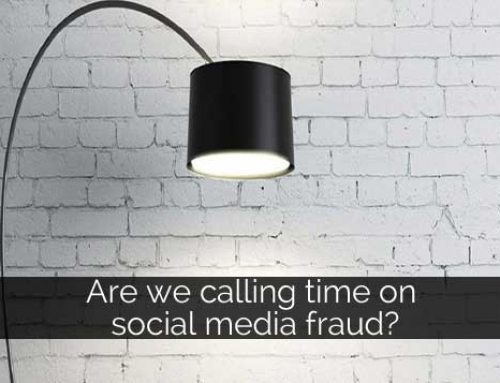“Another day, another Facebook request from someone I’ve never met.”
We’ve had some interesting discussions recently with people about how they use the different social media sites, ranging from friends and family to clients and other business contacts. There is some broad consensus in certain areas (those working for larger organisations generally wouldn’t be rushing to add their MD as a facebook friend, for example) but a lot of grey areas around the margins. At Rose McGrory we’re pretty well agreed about where the boundaries are though, and our personal social media policies would look something like this…..
 Our Facebook profiles are strictly personal life only. The Friend spectrum runs from “people who’ve known me since I was born” (well, pretty much) through to “I haven’t known you long but we’ve worked closely together and really clicked”.
Our Facebook profiles are strictly personal life only. The Friend spectrum runs from “people who’ve known me since I was born” (well, pretty much) through to “I haven’t known you long but we’ve worked closely together and really clicked”.
For us, Facebook is a relatively intimate space. The people who we wouldn’t mind seeing if we had a bad cold and no makeup on – they’re our Facebook friends, and by definition that will be a smallish group (It has to be. Our liability insurance wouldn’t cover that level of trauma to the general public).
We’re all for authenticity and transparency in social media, but that doesn’t mean all boundaries have to go out of the window – expressing a preference about this is not equivalent to concealing a terrible alter ego prone to binge drinking and kicking puppies.
So when we get friend requests from people we’ve met very recently or briefly – or sometimes, have never met at all but “know of us” through one route or another – we feel guilty, but they have to be declined.
A Facebook business page is a different matter, of course, and that’s what it’s there for; to provide a relatively informal space for any individual or business to interact with us on a (relatively!) professional level. The personal vs business question is still playing itself out on Facebook, but last week’s changes were another good step in the right direction.
 LinkedIN is quite clearly defined as a professional space, so we’re generally more relaxed about who we connect with. Still, though, it’d be nice if we’d at least spoken – and if we haven’t, or it was a long time ago, for the love of God at least make the effort to accompany your request with a quick note explaining why you want to connect. We’re also not really a big fan of the “we belong to the same group” type approach; that’s all well and good, but why exactly do you want to link up?
LinkedIN is quite clearly defined as a professional space, so we’re generally more relaxed about who we connect with. Still, though, it’d be nice if we’d at least spoken – and if we haven’t, or it was a long time ago, for the love of God at least make the effort to accompany your request with a quick note explaining why you want to connect. We’re also not really a big fan of the “we belong to the same group” type approach; that’s all well and good, but why exactly do you want to link up?
We wouldn’t be on LI if we didn’t believe that our network has value. If you’re basically a stranger, and you don’t explain why you’re actually interested in us, we’re going to have to assume that either a) you’re just a contact collector* or b) you’re primarily looking for access to the valued contacts in our network.
*we know some people do like to do this. Having 2,000 connections that you’ve never spoken to is fine as it goes, although it does make us wonder whether habits like that will eventually devalue the trust element of LI – like those folks who write a stack of recommendations for people who’ve, coincidentally, recommended them….
 On Twitter, anything goes. The fundamental design of the platform makes Twitter much more public than Facebook or Twitter – the presumption is that the output of anyone using the platform can be seen by anyone else, without the approval of the person sending the Tweets. That’s great. We all know where we stand (well mostly, although you do get the odd confused user who thinks Twitter is specially for them).
On Twitter, anything goes. The fundamental design of the platform makes Twitter much more public than Facebook or Twitter – the presumption is that the output of anyone using the platform can be seen by anyone else, without the approval of the person sending the Tweets. That’s great. We all know where we stand (well mostly, although you do get the odd confused user who thinks Twitter is specially for them).
In our opinion, that really contributes to the open and friendly feel of Twitter – generally, people feel comfortable “joining in” with the conversations of total strangers, and are welcomed for doing so. We’re always pleased to hear from new followers, even more so if they drop us a line to say hello.
So,that’s that sorted. All we need now is for Facebook and LinkedIn to add a new option of “decline request – and point user towards this blog entry”…..
Do you think we’ve got it right or wrong? How do you run your social media accounts?





Kate – I think you’ve got this spot on. I too regard Facebook as purely personal, and anyone looking at my (limited) profile on Facebook would see that and should understand that it is in no way work related. So when someone I’ve just met at a networking event wants to be my friend on Facebook, touching as it may be, I think it’s just plain weird!
I have many LinkedIn connections, gathered over around 3-3.5yrs of LinkedIn membership. Whilst I HAVE connected with a handful of relative strangers, this is very rare indeed. The majority of my connections are people I’ve met (probably 90%+), and if not met then spoken to on the phone extensively (5% – particularly those business contacts I’ve made who work overseas), or had some extended email contact with.
What I’ve really noticed is that as my connections have increased, so has the number of random punters looking to link with me. I guess one is a function of the other but, like you, I’m somewhat suspicious of their motives – particularly from people who call themselves things like “professional networker” or “visionary entrepreneur”. Honestly, what do these people actually DO?!
Thanks Stuart! I must admit to giving in to the guilt on occasion and letting one or two virtual strangers slip through on LinkedIN, but that’s stopped as of a while back. Feeling a bit left out now that I don’t have any requests from “visionary entrepreneurs” in my inbox, though 😉
I have to add my agreement too. I make it a policy of only accepting LI invitations from people I know or as a minimum have actually spoken to or emailed. Spurious invitations from people who happen to be part of a group I am in are usually ignored. Are they the new spammers?
Perhaps I am missing something, but unless someone is a genuine contact, I see no benefit in becoming a name in someone’s collection of ‘friends’ on Facebook or ‘contacts’ in LI. Nor do I request that contacts of my contacts become Facebook friends or LI contacts unless I know them and they know me.
I would rather protect the integrity of these social media and do a little to protect my own integrity and privacy at the same time.
I think you’re right about the numbers game Joy. It *is* a bit of a minefield though….I wonder if many of the “indescriminate” requestors have been poorly advised by articles telling them that’s how to get the best out of the various platforms. As people use them more, I think we’ll see a return to sanity around this kind of thing!